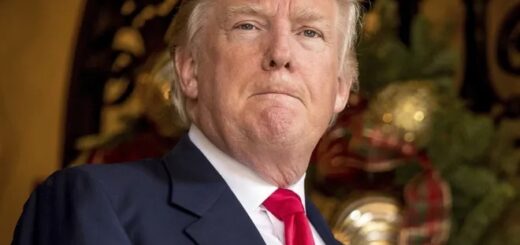Trump Agrees to Pause Tariffs on Canada and Mexico, But China Not Spared
President Trump has decided to temporarily halt the implementation of 25% tariffs on goods from Canada and Mexico for a 30-day period. This decision averts a potential trade conflict with these vital North American allies.
In conversations with Trump, Canadian Prime Minister Justin Trudeau promised to bolster Canada’s border security with the U.S. This move aims to curb illegal migration and the trafficking of fentanyl, a potent drug that has been a significant concern for the U.S. administration.
Similarly, Trump reached an agreement with Mexican President Claudia Sheinbaum, who committed to strengthening Mexico’s northern border with military personnel. In return, the U.S. would control the export of firearms into Mexico
However, the scenario is starkly different with China, as a 10% tariff on Chinese imports is now in effect following a midnight deadline. This has triggered a wave of retaliatory tariffs from Beijing on various American products, including coal, liquefied natural gas, crude oil, and agricultural machinery, with rates ranging from 10% to 15%.
Trump expressed his intention to communicate with the Chinese leadership soon, referring to the new tariffs as a preliminary step that could escalate significantly if no resolution is achieved
Canada and Mexico responded promptly to the initial tariff threats by preparing their own countermeasures. However, recent phone discussions led to the announcement of a temporary accord, effectively delaying tariff enforcement for 30 days. Trump and Trudeau both celebrated the outcome as a diplomatic victory.
“As president, it is my responsibility to ensure the safety of ALL Americans, and I am very pleased with this initial outcome,” Trump shared on Truth Social.
Prime Minister Trudeau revealed that Canada is rolling out a comprehensive $1.3 billion border security plan. This initiative includes deploying nearly 10,000 frontline workers and improving resources to combat fentanyl trafficking. Additionally, Canada plans to establish a dedicated role for a “fentanyl czar” and a joint task force with the U.S. targeting crime, fentanyl distribution, and money laundering.


